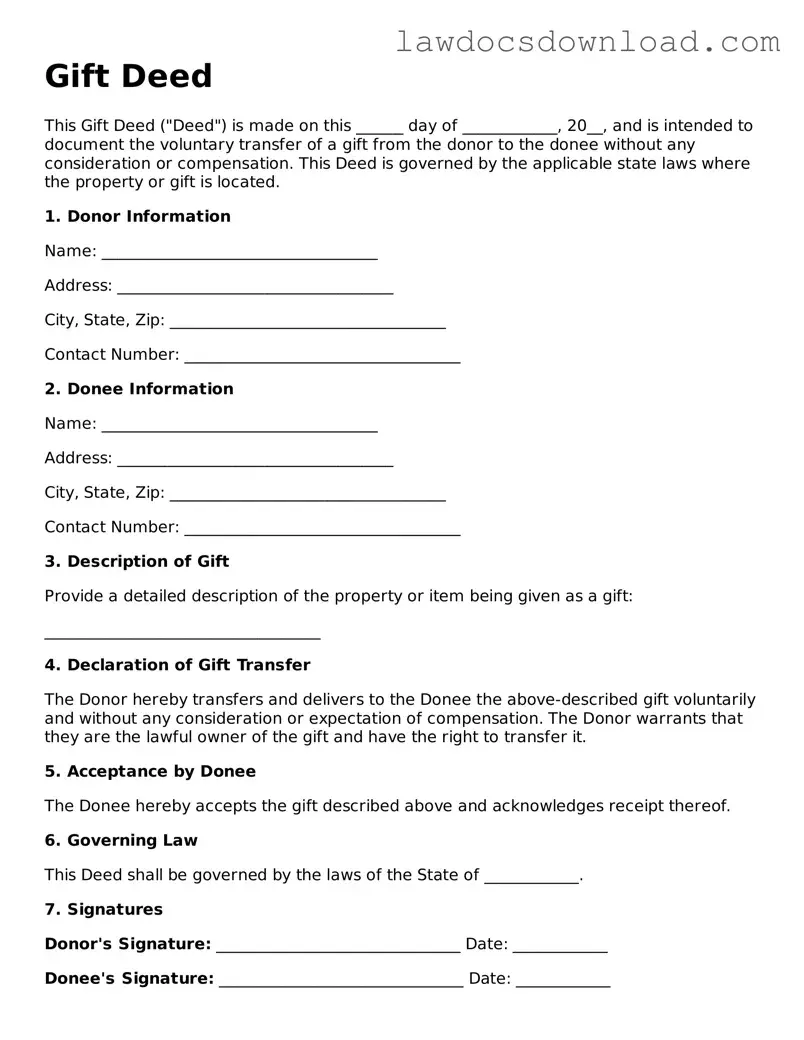Blank Gift Deed Template
A Gift Deed form is a legal document that provides a clear and formal way to transfer ownership of property from one person to another without any exchange of money. This mechanism not only ensures the legality of the gift but also records the intention behind the transfer, making it an invaluable tool for both the giver and the recipient. It is essential for those who wish to pass on valuable assets to loved ones with minimal complications.
Launch Gift Deed Editor Here

Blank Gift Deed Template
Launch Gift Deed Editor Here

Launch Gift Deed Editor Here
or
Free Gift Deed
Get this form done in minutes
Complete your Gift Deed online and download the final PDF.